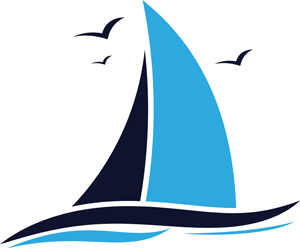Navigating the Waters
Navigating the Waters
 ARCHIVE 2004: Navigating the Waters: A National Employment Initiative of the Canadian Association of Independent Living Centres
ARCHIVE 2004: Navigating the Waters: A National Employment Initiative of the Canadian Association of Independent Living Centres
We have a rich and pioneering history with promoting the inclusion of Canadians with disabilities in the workplace. When Navigating the Waters was first conceived, it was the first of its' kind program in Canada that blended the ideology of IL with Employment. This then novelty paved the way for what is now considered an expectation across all sectors of employment in Canada: Employing persons with disabilities equitably and with full inclusion. Ultimately, Navigating the Waters was transitioned to being unfunded, as the then government pursued alternatives to inclusive employment. Many IL Centres at the time created local and regional employment programs for their consumers to continue the much needed work that Navigating the Waters began and was so successful with.
Project Summary:
By Susan Forster, National Project Manager, Navigating the Waters
Navigating the Waters is a national employment initiative coordinated by the Canadian Association of Independent Living Centres (CAILC)* with funding provided by the Opportunities Fund, Human Resources Development Canada. Anyone with any type of disability between the ages of 16 to 64 who is unemployed is eligible for individualized support through Navigating the Waters (NTW) to reach employment and employment-related goals.
Since 1997 Navigating the Waters has supported over 3550 persons with disabilities and 1108 (31%) of these participants subsequently became employed full-time or part-time, including a small number of individuals who chose self-employment. Each year our Centres also work directly with youth with disabilities who are often looking for their first job in the labour market. NTW is delivered locally in most of CAILC's Member Centres. For a list of locations or to contact us, see the end of this article.
A Career Development Facilitator in each Centre taking part in NTW works one-on-one with each person with a disability to meet individual needs. Some participants require pre-employment supports and could be in the process of beginning the journey toward employment. Others are looking for a volunteer placement, a work experience program, or want to upgrade their skills through taking courses (such as literacy training), completing high school, or enrolling in college or university.
However, many participants are job ready. And many of our Career Development Facilitators work directly with employers and are very willing to provide qualified candidates for job postings. In recruiting post-secondary students and graduates with disabilities, the following tips may be helpful:
- Clearly state in each job posting that you encourage qualified people with disabilities to apply;
- Routinely place your ads with the Office for Students with Disabilities at your local college and/or university;
- Make a practice of sending job postings to your nearest Independent Living Resource Centre and/or large disability service provider(s);
- When setting up job interviews routinely ask candidates, who have self-identified as a person with a disability, if accommodation is needed during the interview;
- Hire a summer student with a disability. Many disabled job seekers need that first job to get real work experience. You will be providing a wonderful opportunity for a young person with a disability and you may later be able to hire that student when he or she graduates;
- Cultivate your contacts in the educational/disability community so that you can develop a file of resumes;
- Ensure disability is a consideration in all recruitment and human resource functions.
Workplace accommodation is an area that many employers are not familiar with. Here are some tips:
- Disabled job seekers vary in how much they know about accommodation in the workplace. However, through necessity many young people with disabilities have had to become their own "accommodation experts";
- Ask the prospective employee directly how best you can accommodate him or her in your workplace. You may discover a wealth of knowledge on workplace accommodation just by tapping into your new employee's own expertise in this area;
- If this is not the case, then you may wish to contact your nearest Independent Living Resource Centre or relevant disability service provider(s) for information and resources;
- It is really crucial for the success of workplace accommodation, for all those involved in the process, to work as a team;
- The employee with a disability needs to play as active a role in this process as he or she is able to in order for the workplace accommodation to be a real success.
Through Navigating the Waters and my own personal experience as a person with a disability, I have seen that once hired many people with disabilities do not receive the same opportunities for promotion as do their non-disabled colleagues. As an employer, it may be useful to view the employee with a disability as an individual first and as an employee with a disability second. Disability is one characteristic of that person. If you see the person first then you may be better able to see the potential of your new employee. These tips form the basis for developing an accessible and effective employment program.
Our successes with Navigating the Waters are varied. Here are some examples. One young participant now holds down two part-time jobs in retail. Another individual, who became disabled as an adult, re-trained to become a school bus driver. Other participants have been hired to work for the public service, started their own businesses, become Web site designers and published books. One participant become a dairy farmer, while another was appointed to the Ontario Human Rights Commission; yet another person was hired by one of our Independent Living Centres to work in its Peer Support Program.
We are very proud of the achievements of the Navigating the Waters initiative. One effective practice of NTW is that most of us who work on the program, including our Career Development Facilitators and myself as Manager, are also persons with disabilities. If you are an employer whose organization is large enough to have a Human Resource Department, consider hiring a young graduate who is a person with a disability as a Human Resources Consultant. Then you too would be putting into the workplace a person with valuable skills that come with lived experience.
If you would like more information on Navigating the Waters, here is a list of locations across Canada:
British Columbia: Duncan, Nanaimo, Richmond, Vernon, Victoria
Alberta: Calgary
Saskatchewan: Regina, Saskatoon
Manitoba: Winnipeg
Ontario: Collingwood, Kapuskasing, Kingston, Ottawa, Parry Sound;
St. Catharines, Thunder Bay
Quebec: Montreal, Trois-Pistoles, Val D'Or
New Brunswick: Shippagan
Nova Scotia: Halifax
Newfoundland & Labrador: St. John's
 English
English Français
Français